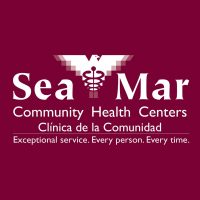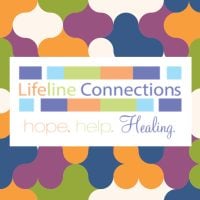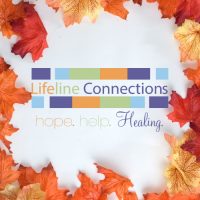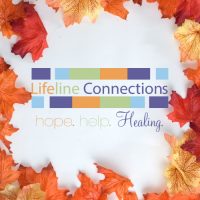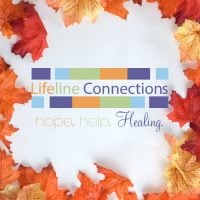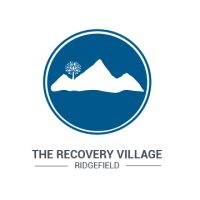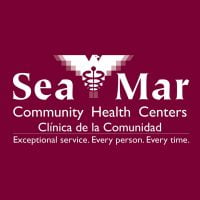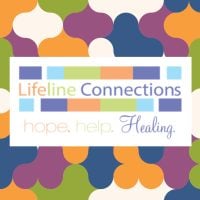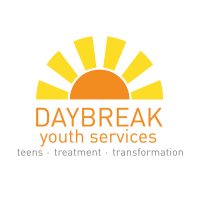Wellness Center
Drug Rehab Center in Vancouver, Washington
The Wellness Center in Vancouver, Washington provides evidence-based care for addiction, substance abuse, and mental health issues, offering a variety of programs, counseling, and family services, as well as a 24/7 clinical team, individualized treatment plans, and alumni and continuing care programs.
About Wellness Center in Washington
The Wellness Center in Vancouver, Washington is an outpatient addiction treatment center that provides person-centered, evidence-based care for individuals suffering from addiction, substance abuse, and mental health issues. Their services encompass a variety of programs and counseling to best serve their clients, and also include a wide range of family services for those in need. Their care is supported by a 24/7 clinical team working closely with their clients to ensure the best possible outcomes.
At the Wellness Center, clients are offered individualized treatment plans that include options such as anger management, relapse prevention, and trauma-informed care. Intensive Outpatient Programs (IOP) is also offered, as well as medication management, recovery support services, and comprehensive mental health assessments. Morover, their team also provides family therapy, which includes support for family members who are affected by their loved one's addiction or substance abuse.
Wellness Center is an accredited organization, with accreditation from the Department of Health and Human Services, and they are licensed by the Washington State Department of Health and Human Services. They are also a member of the National Association of Addiction Treatment Providers (NAATP), and have been recognized for their outstanding service with a variety of awards. Additionally, Wellness Center offers alumni programs for those who have completed treatment as well as continuing care for those on their journey to recovery.
Genders
Ages
Modality
Additional
Conditions and Issues Treated
Levels of Care Offered
This center offers a variety of custom treatment tailored to individual recovery. Currently available are Outpatient, with additional therapies available as listed below.
Outpatient programs offer a lower intensity level of addiction treatment than inpatient facilities. They are ideal for those who have graduated from inpatient facilities, have a supportive home environment, and are motivated to commit to the program. Services offered include medication-assisted treatment, individual and group therapy, and peer group support.
This treatment is a popular option for those suffering from a lower intensity addiction. It is not advisable for someone who needs to go through a medically supervised detox or does not have a supportive home environment. It requires motivation and dedication to commit to the program without constant monitoring.
Therapies & Programs
During individual therapy at Wellness Center in , the person in recovery meets with a therapist one on one to go over their situation and learn from past mistakes. The counselor or therapist will use this time to address the causes of addiction, triggers, and any mental issue or dual diagnosis. They will also address aftercare plans, giving them the best chances of long-term sobriety.
This therapeutic process is very intense and challenging to go through. Some clients may find it easier to open up with someone apart from their family or loved ones who understand their struggles and experience with addiction.
The process of going through couple’s therapy at Wellness Center in allows for both partners to be on the same page regarding addiction recovery. Whether one or both members of the couple struggled with addiction, they can improve their odds of sobriety by undergoing this treatment together. This therapeutic environment teaches how to communicate effectively and avoid relapse triggers while building healthy lifestyles that may help maintain sobriety following graduation from rehab programs.
Family therapy is designed to help addicts get clean and sober by using what they love the most; their family. Most drug treatment centers make it mandatory that the addict’s family attend therapy sessions, which is great because having everyone there to support them makes it much easier for them to get clean. Not only are they surrounded by people who want them to get better, but everyone is there because they want the best for them, not because they feel like they have to be.
Drug addicts are often surrounded by resentful or uneducated family members who would, at times, rather see them stay addicted because it makes their own lives easier. Sometimes they don’t understand what the addiction is or how they play a part in it. They know that during and after the addict’s sobriety journey, they will face challenges and changes that they aren’t sure how to handle. This can be very tough for an addict to go through on their own, which is why it’s so important that they have the support of their family. Just because someone is an addict does not mean that they don’t deserve the love and support of those around them.
Addicts in Vancouver, WA can find support in group therapy at Wellness Center by finding peers who understand their situation and being held accountable. They also learn to develop faith, understanding, and insight into their addiction through shared conversations.
Group Therapy is employed by drug treatment centers to provide the recovering addict with a platform to talk about their feelings and experiences. It also provides for an opportunity to learn from other addicts who have successfully overcome their addiction. It is recommended that all group members be recovering addicts for this type of therapy to work.
Trauma therapy allows people who struggled with a past trauma to face the situation and learn from it. Many people go through traumatic events at an early age that later leads them into addiction as adults. By addressing this issue during treatment at Wellness Center in [/type], you can move forward with your recovery process and take back control of your sober future, too!
Traumas are one of the most common causes of psychological disorders such as Addiction Disorder. It’s often found among those diagnosed with Addictive Disorders because traumatized individuals have strong emotions or thoughts related to their traumas, leading to addictive behaviors.
Dialectical behavior therapy (DBT) is a cognitive-behavioral therapy that focuses on eliminating specific negative thoughts, such as suicidal thoughts. These negative thoughts can potentially lead to an individual inflicting self-harm. It helps treat patients exhibiting uncontrollable emotions, intense mood swings, and borderline personality disorders.
The term “Dialectic” means the integration of opposites. In substance abuse, DBT refers to accepting the patient’s addiction and working to change their thoughts and behavior. It improves life skills such as controlling intense emotions without reacting impulsively, resolving interpersonal conflicts effectively, and promoting awareness about self and others.
Cognitive Behavioral Therapy (CBT) helps addicts comprehend the causes of their substance abuse and the consequences that follow. The treatment’s goal is to help addicts gain self-control and maintain abstinence from drugs and alcohol over the long term. Through CBT, clients learn to recognize and avoid high-risk situations and cope with challenging situations when they arise.
Nutrition therapy has been used as a treatment modality for addiction recovery and in eating disorders for adults, adolescents, and children. Specific nutrients have been identified that influence neurotransmitters associated with reward pathways of the brain. Carbohydrate loading with complex carbohydrates to elevate serotonin levels was effective in treating bulimia nervosa. This approach prompted researchers to explore the use of this type of nutritional intervention in other disorders.
Nicotine replacement therapy is a popular method of treatment that helps individuals overcome their addiction to cigarettes by providing them with safer alternatives. Nicotine replacement options can include:
- Inhalers
- Gum
- Patches
These treatments are often used in combination with other therapies, such as cognitive behavioral therapy or motivational interviewing, to help individuals more easily transition into a smoking-free lifestyle.
Patient Experience
Experiential Therapy at Wellness Center
Experiential therapy is a type of treatment involving immediate, intense experiences designed to manage addiction. Experiential therapy is beneficial for:
- People who are seeking to overcome an addiction but have difficulty focusing on treatment goals
- People with short attention spans due to high levels of stress or difficulty concentrating
- People who are afraid of engaging in treatment due to negative past experiences
Payment Options Accepted
For specific insurance or payment methods please contact us.
Is your insurance accepted?
Ask an expert, call (888) 674-0062
Additional Details
Specifics, location, and helpful extra information.
Vancouver, Washington 98663 Phone Number(360) 546-1722 Meta DetailsUpdated November 25, 2023
Staff Verified
Wellness Center Patient Reviews
There are no reviews yet. Be the first one to write one.
Vancouver, Washington Addiction Information
Washington's substance use, abuse, and addiction rates have followed the trends of the rest of the over the past years. Methamphetamine abuse is the biggest threat to Washington. Heroin-related overdoses increased by almost 450% from 2006 to 2016. 20% of all annual deaths in Washington are somehow drug and/or alcohol-related. Drugs are widely abused in Washington because they are easily trafficked in and out of the state.
Vancouver, WA, has one of the highest rates of drug abuse in the entire country. In 2016, there were 392 drug-related calls for service, an increase of almost 9% from the year before. The most common drugs abused in Vancouver are methamphetamine and marijuana. Vancouver, Washington, has many different types of drug rehab centers that offer various services. 12-step programs are generally ongoing and common there.
Treatment in Nearby Cities
- Pullman, WA (273.0 mi.)
- Centralia, WA (75.0 mi.)
- Mead, WA (291.3 mi.)
- Richland, WA (168.8 mi.)
- Colville, WA (300.7 mi.)
Centers near Wellness Center
The facility name, logo and brand are the property and registered trademarks of Wellness Center, and are being used for identification and informational purposes only. Use of these names, logos and brands shall not imply endorsement. RehabNow.org is not affiliated with or sponsored by Wellness Center.
